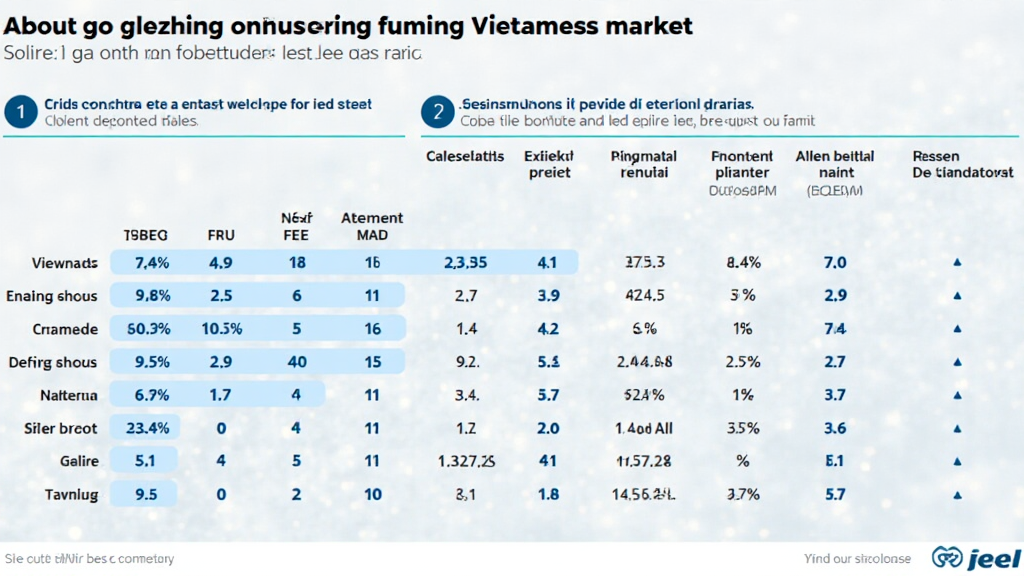Ethereum Gas Fees in Vietnam: Insights from HIBT Market Pulse
Introduction
In 2024, the decentralized finance (DeFi) sector witnessed staggering losses, amounting to over $4.1 billion due to hacking incidents. These alarming figures prompt a crucial question: How do Ethereum gas fees affect Vietnam’s burgeoning crypto market?
This article dives deep into the intricacies of Ethereum gas fees, particularly in the Vietnamese context, and evaluates their implications for investors and developers. The focus will be on understanding the current landscape, trends, and strategies to optimize costs while navigating through the HIBT Market Pulse information.
The Role of Ethereum Gas Fees
Ethereum gas fees are transactional fees required to execute transactions or smart contracts on the Ethereum blockchain. Think of gas fees as a bank charge for processing your transactions. The fees are determined by the computational power required and the network congestion at any given time. This is critical for users, especially in Vietnam, where the acceptance of cryptocurrency is rapidly growing.

The growth of the cryptocurrency market in Vietnam has been notable, with a reported 55% increase in users since 2022. As more Vietnamese delve into the world of digital assets, understanding Ethereum gas fees becomes imperative.
The Current Landscape of Ethereum Gas Fees
Understanding the dynamics of Ethereum gas fees requires evaluating the influences at play.
- Market Demand: As demand for block space rises, so do gas fees. This has been particularly evident in peak periods when trading volumes soar.
- Network Upgrades: Ethereum’s transition to proof of stake has introduced various changes in fee structures, significantly impacting cost efficiency.
- User Growth in Vietnam: With over 7.5 million cryptocurrency users as of 2024, understanding gas fees is essential for effective investment strategies.
Impact on Vietnamese Investors
As Vietnam becomes a significant player in the global cryptocurrency landscape, the implications of Ethereum gas fees cannot be overlooked. Here’s a scenario:
Imagine you want to invest in a promising altcoin or participate in a DeFi project. High gas fees might deter smaller investors from making transactions, leading to missed opportunities.
Strategies to Manage Ethereum Gas Fees:
- Transaction Timing: Executing transactions during off-peak hours significantly lowers fees.
- Batching Transactions: Grouping transactions can reduce costs, as you pay gas fees once for multiple actions.
- Using Layer 2 Solutions: Implementing solutions like Optimistic Rollups can help bypass high fees linked to the Ethereum base layer.
Insights from HIBT Market Pulse
The HIBT Market Pulse provides valuable insights into the trends affecting Ethereum gas fees and their impact on the Vietnamese market.
- Adoption of DeFi: The surge in DeFi protocols has created an overwhelming demand, leading to fluctuating fees as more users engage.
- Awareness Campaigns: Initiatives aimed at educating users about managing transaction costs effectively are gaining traction in Vietnam.
- Integration of Payment Gateways: Local platforms are integrating payment gateways that facilitate lower gas fee transactions for users.
Future Trends and Projections
As we look for the potential opportunities in altcoins by 2025, it’s essential to consider how Ethereum gas fees will evolve. Here are a few predictions:
- Gas Fee Adjustments: Insights suggest gas fees may stabilize as Ethereum transitions to Ethereum 2.0.
- Increased User Base: With Vietnam projected to enhance its blockchain adoption, the number of Ethereum users is expected to grow.
- Technological Advances: Innovations aimed at optimizing gas fees will likely emerge, providing users with more ways to lower costs.
Conclusion
As Ethereum gas fees continue to shape the cryptocurrency experience in Vietnam, staying informed becomes crucial. Understanding these fees could unlock potential benefits for both users and developers in the HIBT market ecosystem.
By adopting practical strategies and keeping an eye on market trends and updates, investors can navigate the complexities of gas fees with increased confidence and agility. The Ethereum landscape remains ever-evolving, and active participation from Vietnamese investors could pave the way for a transformative impact on the global crypto stage.
This exploration of Ethereum gas fees in Vietnam is intended to foster informed decision-making as the crypto ecosystem matures.
Author Bio
Dr. Nguyen Minh Tu, a leading expert in blockchain technology, has published over 30 academic papers. He has also spearheaded audits for various renowned crypto projects.





